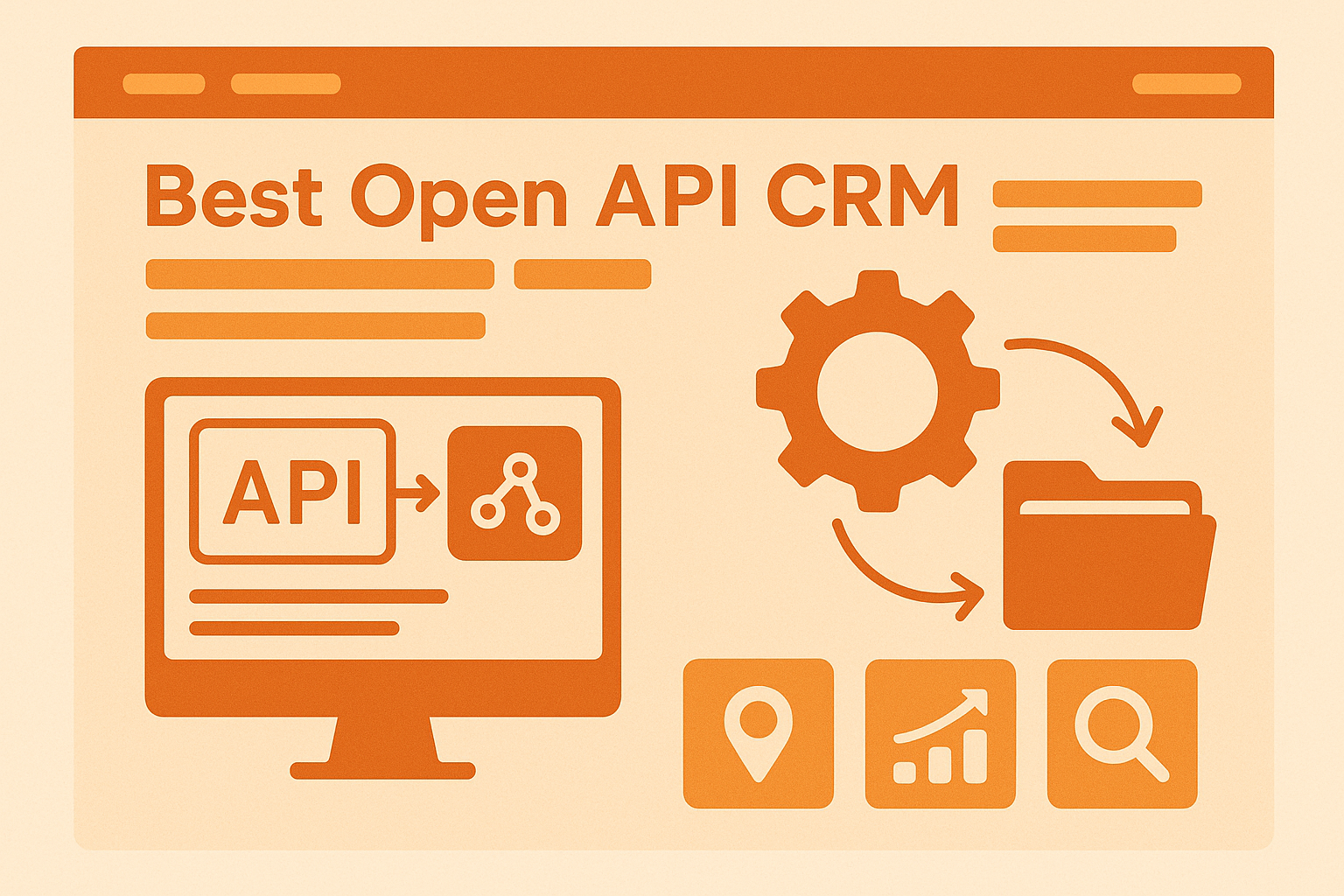Whether you are a small business or large enterprise—you need to organize your data.
Every day, your company and employees create huge volumes of data. It’s not just the data analysts who are producing it. Every time someone answers the phone, meets with a client, or takes an order, that’s more data for your business to process. If you process it correctly, you can learn something new and potentially valuable.
But where does this data usually go? It ends up on an employee’s smartphone, or scribbled on a post-it note, or siloed in a desk drawer.
By the end of the year, the average business will collect 50 trillion bytes of data. Without a system for organizing this information, it becomes impossible to manage. All your potential business insights end up going to waste.
Disorganized data can also slow your business down and decrease profitability. Without a company-wide data management solution, your business is subject to 66% more operational costs.
4 Types of Organization Software Every Business Needs
The best way to keep track of all your data is to digitize your office with the right software:
- Document Management Software
- Collaboration Software
- Accounting Software
- Customer Relationship Management Software (CRM)
These organizational tools will simplify your business processes and keep data at your fingertips.
Simplify Paperwork with a Document Management System
Is your office filled with filing cabinets and bankers boxes? Is there a pile of papers on your desk, labeled only as inbox/outbox? Do you have to weed through a different filing system for every department?
Most office workers spend 30 minutes a day searching for lost paperwork, according to the time-management consulting firm, The Productivity Pro. Then there’s the time lost to filing, copying, transferring, and organizing office documents.

Get back those lost hours with a document management system (DMS). A DMS is a business organization tool that creates a digital filing cabinet. You can create a paperless office by scanning your documents into the software. From there, the DMS can automatically file your documents according to your preferred organization template.
DMS is a cloud-based software, so your documents are accessible from any device with an Internet connection. Plus, all of your content is searchable. You’ll never have to endure the laborious process of manually searching for a file again. Privacy settings keep your documents safe from unauthorized users.
Digital Clutter
Digital disorder can be just as draining and stressful as physical clutter. If your desktop functions as a junk drawer, a document management system can clean that up too. It will operate in the background, organizing your computer files automatically.
Organize Business Communication with Collaboration Software
Let’s address another common culprit of office disarray—your inbox. The average office worker receives 44,000 emails a year. Staying on top of the sea of correspondence would be a full-time job in itself.
Plus, many people use email for functionality it was not designed for. They email themselves reminders and to-do lists. Projects are managed between colleagues using endless email threads. You can better organize your business by choosing software that was built for productivity and collaboration.

Never waste time searching an email thread again. With collaboration software, all of your project data is organized in one place. Due dates, next steps, and who is responsible for each task are structured in a highly-visual format. Whether it’s an interactive timeline or a Kanban board, everyone on the team can monitor a project’s status.
The average worker loses 3.5 hours a week waiting on their colleagues to respond. Collaboration software removes these communication lags by simulating the face-to-face interaction that teams thrive on. Collaborators can easily keep tabs on each other. Users can mark themselves as available or put up a digital “out of the office” sign. There are also tagging systems and alerts to ensure colleagues know when a task needs immediate action.
How to Organize Financial Data: Accounting Software
As a business owner, keeping your finances in order is one of your most essential tasks. More than likely, it is also one of your most time-consuming. The stream of payables, receivables, bank statements, and expense reports never stops. Manually crunching all the numbers is a major headache (and eye strain), so there’s an understandable tendency to procrastinate.
Numerical data entry is also more prone to error. Transposition errors are especially common, such as when you enter 92 instead of 29. A single stroke of the keyboard can have enormous ramifications for the accuracy of your accounts.

It’s time to leave the Excel spreadsheets behind and embrace the ease and efficiency of accounting software. You can skip data entry and scan and upload all of your financial documents instead. Accounting software can also pull financial data from multiple sources, such as your eCommerce site and bank accounts, and then reconcile the numbers for you.
Cloud-based accounting software comes with a mobile counterpart. You can access and organize your financial data anywhere, any time.
In addition to being a huge time-saver, accounting software eliminates the possibility of human error. You have accurate information that is automatically updated. Business owners get a snapshot of their financial health in real-time.
Keep Track of Customer Data With CRM
Many businesses still track customer data using spreadsheets. The problem with this organization tactic is you can only capture the basic information, such as invoice numbers and contact information. An Excel spreadsheet will tell you nothing about your relationship with the customer.
This is a pity, as customer relationships are the cornerstone of business success. Consumers no longer choose who they do business with based on product or price. According to the customer research firm Walker, the most important factor is now customer experience (CX).

CRM is a great way to attract new customers and keep the ones you’ve got. The software was built for relationships—it’s what the “R” stands for.
A CRM can organize customer data and database along every touchpoint, creating a detailed history of the client. Every purchase, every service request, and every customer’s preference is at your fingertips through the customer database.
This single 360-degree view of the customer is accessible to anyone in the organization. Any employee in any department can help the customer and deliver the excellent CX they expect. The wealth of customer data also helps your sales team create a personalized pitch — leading to more sales and happier customers.
Keeping Your Organization Tools in Sync
Even if you’re using the best tools to grow your business, success can lag if they aren’t talking to each other. Data silos end up creating blindspots for your business, and communication between department stalls.
For individuals, too many tools can interrupt their flow. Multiple log-ins, windows, and interfaces end up slowing employees down.
CRM creates a centralized way of sharing data. All of your other tools, apps, and software can be integrated into the CRM platform. You don’t have to copy the data from one tool to another—the CRM creates a pipeline of data between them. You can access company data across all departments, apps, and data types.
Employees no longer have to hop from one organization tool to another. You can access your entire digital toolkit from a single dashboard.
Benefits of Data Organization
Data sprawl refers to the overwhelming amount of data collected by businesses. Every day, approximately 100 billion bytes of data come into the office. That amount far exceeds the ability of most companies to process it.
To give your business a competitive edge, invest in data organization software. Document management systems, collaboration software, accounting software, and CRM will collect and make sense of your data for you. Your business can make the data-driven decisions it needs to get ahead of competitors and drive more revenue.
Getting rid of paper and digitizing your company data will also make employees more efficient and keep your business operating smoothly. This, in turn, gives you more time to nurture customer relationships—a proven strategy for long-term business success.
There are hundreds of vendors on the market. Need help choosing the right CRM? Try our free CRM selection tool today.
Not sure what you need?
Use our free guides and tools. Just fill in the forms with your requirements and get a full report and list of CRMs that could be a great fit for your business.




